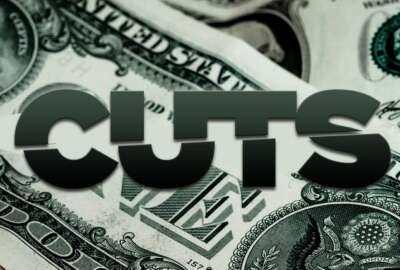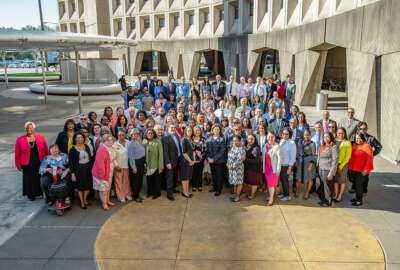
Ever wish you had been privatized?
The private sector can bring perks and pay many feds only dream of, but a recent report by the Federal Reserve Board, indicated life outside the federal fold is not...
When you drive through affluent areas and neighborhoods in the D.C. area — i.e. Georgetown, McLean, Potomac and Old Towne Alexandria — do you ever wish you had gone into the private sector? Maybe you could have become an executive, or a lobbyist or a lawyer like the folks who probably occupy those stately homes.
Had you made a different career move, maybe you would be living in San Francisco instead of having a 60-mile daily commute. You might be in one of the nicer parts of Austin, Chicago or Manhattan.
Maybe you would have wound up on a careet track financed by stock options, bonuses and profit-sharing deals that truly would have recognized your skills, drive and talent? And you could send your kids to private schools like some Washington-based politicians who, whether liberal or conservative, agree on one thing: Public schools are not for their special offspring who need smaller classes, better teachers and transportation despite $30,000 to $45,000 tuition.
Yeah, with your talents, smarts and drive you definitely should have gone private.
Or maybe not.
A recent report by the Federal Reserve Board, which is comprised of public servants who live a little higher on the hog than their fellow civil servants, paints a very different picture of American life outside the federal fold.
While most polls and surveys involve fewer than 1,000 people, the Fed’s covers 12,000 Americans from all walks of life. And what it shows is not very pretty:
- Forty percent of those surveyed don’t have enough cash reserves in the bank — or in a coffee can under the bed — to cover the $400 cost of a medical emergency, car repair bill or enough to purchase a new hot water heater.
- Twenty-five percent of those surveyed said they put off medical care because they just couldn’t afford to have their of their kids’ teeth fixed.
- Just under 22 percent said they couldn’t pay all their monthly bills.
- About 30 percent of adults responding to the survey said they don’t have a steady monthly income. What they make after taxes doesn’t cover what they need to spend.
The Washington Post said both the Fed report and a similar survey by United Way indicated that the U.S. economy is not nearly as rosy as some numbers paint it. For many, the Great Recession is far from over.
“Taken alone,” The Post’s Heather Long reported, the numbers in the two reports “mask the fact that some Americans are doing well and some are not.”
No kidding! Most people, whether they are up or down, probably knew that. But for some others it might be a shocker and, if you are in the right metric, a chance to gulp and thank your lucky stars.
So where do feds fit into this picture? Depending on which expert you ask federal workers are either overpaid by as much a 30-plus percent, or are underpaid by as much as 40 percent when compared to their private sector neighbors. Of course the numbers depend on location, which questions you ask, the range of occupations compared and, in some cases, the conclusion the experts wanted to reach.
Suppose that right out of college you were offered a manager trainee slot with super-safe Sears but you joined the Internal Revenue Service, or went to work as an Air Force civilian because of the security. Did you make the right move? The IRS and the Air Force are still going strong, while Sears announced plans to close another 72 stores around the country on Thursday.
Think of the places you could have gone to work and check them out today. Given the job security, the Thrift Savings Plan’s 5 percent match, retirement and health insurance after retirement you may discover that there are a lot worse things you could have done with your life.
Now, about that person you married? To be continued!
Nearly Useless Factoid
By Amelia Brust
The first known magic trick performed was done by a magician called Dedi in Egypt. Dedi performed the trick for King Cheops, also known as “Khufu,” around 2,600 BC. The magician seemingly pulled the heads off a goose, a duck and an ox and then restored them to life, according to The Westcar Papyrus circa the 18th–16th centuries BC. More recently, David Copperfield has performed the trick on tour.
Sources: QI
Copyright © 2025 Federal News Network. All rights reserved. This website is not intended for users located within the European Economic Area.
Mike Causey is senior correspondent for Federal News Network and writes his daily Federal Report column on federal employees’ pay, benefits and retirement.
Follow @mcauseyWFED
Related Stories





